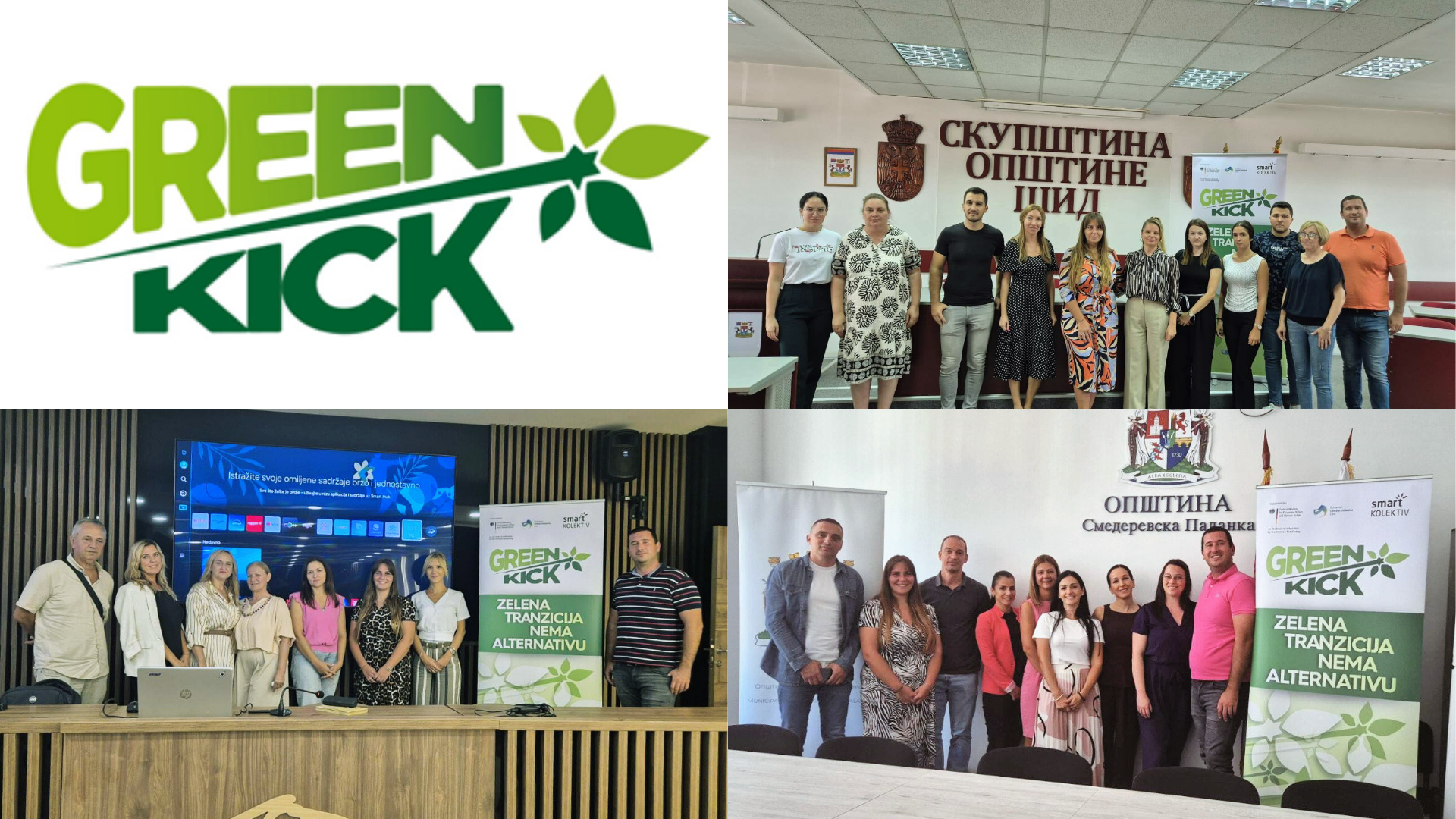Three SECAP workshops were recently held in Šid, Novi Pazar, and Smederevska Palanka, bringing together local government representatives to discuss how to strengthen resilience to climate change through risk and vulnerability assessments. Organized within the “Green Kick” project, the events aim to enhance the role of civil society in the decarbonization process and in tackling the challenges of climate change.
The workshops gathered members of the working and advisory groups of cities and municipalities, representatives of civil society organizations, and other relevant stakeholders. In the introductory session, the importance of developing and implementing the Sustainable Energy and Climate Action Plan (SECAP) was emphasized, as it represents a key document for local climate adaptation policies.
During the working sessions, participants identified the most significant climate hazards, analysed risks and vulnerabilities across sectors such as health, transport, agriculture, and tourism, as well as the exposure of different social groups. Special attention was given to opportunities for strengthening community resilience through planning measures and strategies for responding to extreme climate events.
The workshops concluded with a joint discussion and a summary of key findings, underlining that cooperation and exchange of experiences between local governments are crucial for the successful implementation of climate adaptation measures.
The first workshop was held in Šid on August 21, followed by Novi Pazar on August 22, while the workshop in Smederevska Palanka took place on August 27. The next workshops will be organized in Vrnjačka Banja and Kragujevac.
The “Green Kick” project supports local governments in Serbia in the process of decarbonization and the development of sustainable energy systems. It is implemented by Center for Development and Support from Bosnia and Herzegovina in partnership with the Smart Kolektiv from Serbia and the Foundation for the Development of Northern Montenegro – FORS Montenegro. The project is part of the European Climate Initiative (EUKI), supported by the German Federal Ministry for Economic Affairs and Climate Action (BMWK).



